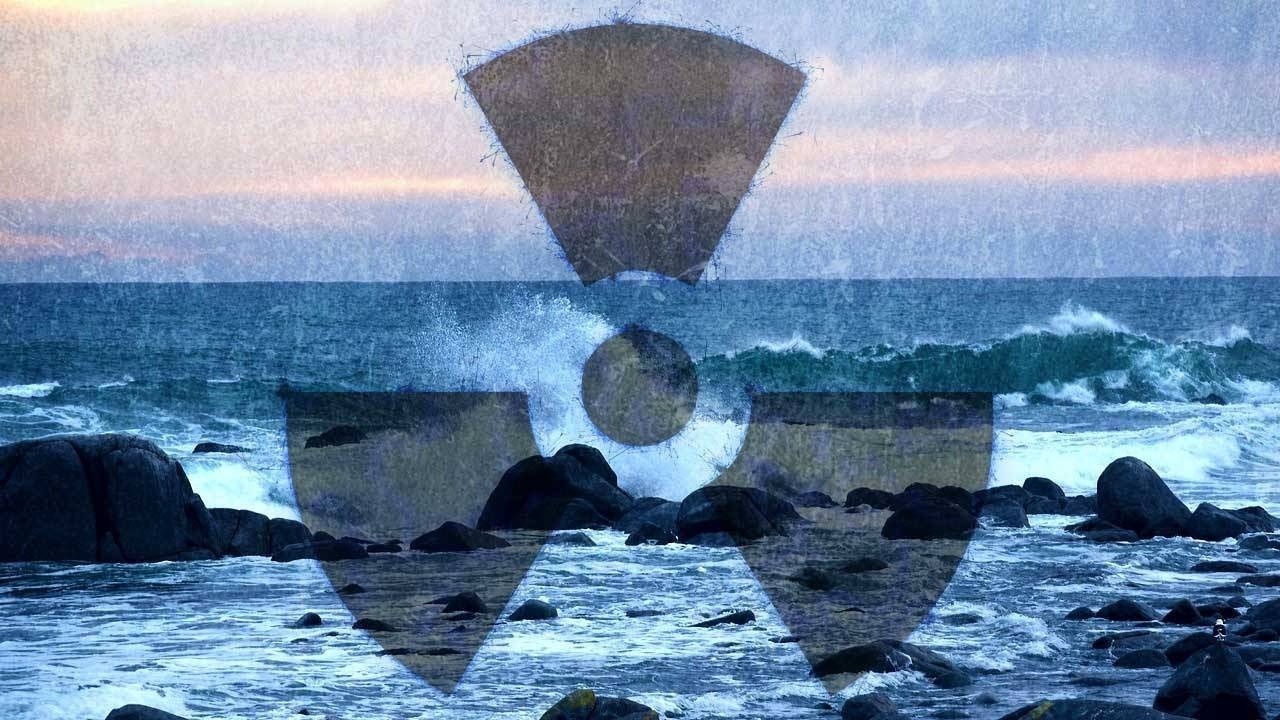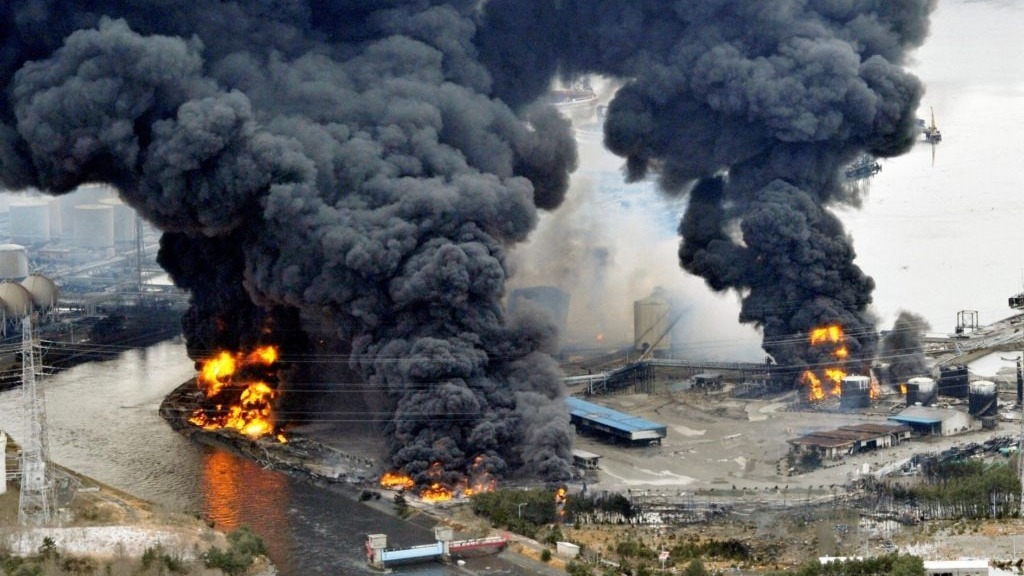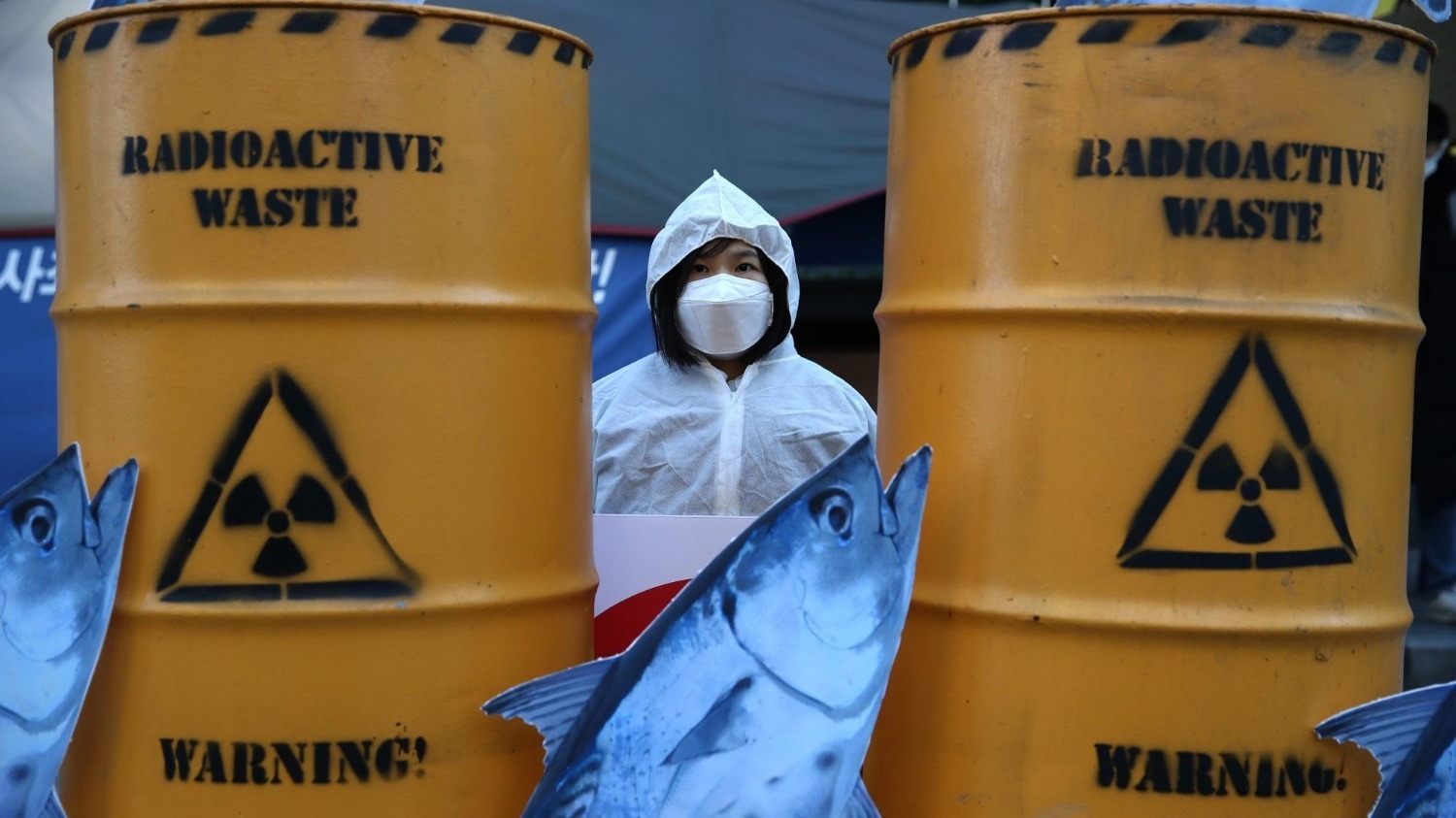Posted 27 июня 2023, 16:48
Published 27 июня 2023, 16:48
Modified 27 июня 2023, 18:40
Updated 27 июня 2023, 18:40

The Japanese will release radioactive water from Fukushima: will it reach our shores?
Gennady Charodeyev
The Fukushima nuclear power plant was destroyed in March 2011 by a tsunami caused by a tectonic impact of magnitude 9.0 on the Richter scale. As a result of the natural disaster, entire cities in the northeast of Japan were under water, tens of thousands of people were evacuated and still cannot return to their homes.
Website hightech.fm He recalled that during the tsunami that destroyed the nuclear power plant, electricity was cut off, the cooling mechanism failed, the reactor core melted and radioactive substances leaked. To cool the reactor, water, including sea water, was pumped into the core.
Rightly outraged by the Japanese plans to dump contaminated water into the Sea of Japan, the neighbors in the region, however, understand that it is impossible to prevent this. The fact is that today, as 12 years ago, when the nuclear power plant exploded, nuclear scientists daily drain 100 tons of water passed through the reactors into a huge tank farm located around the ruins of the station. Very soon, these tanks, where 1.3 million tons of liquid have already accumulated, will run out of space. Therefore, the Japanese made a decision: after cleaning most of the radioactive particles, water should be dumped into the Pacific Ocean.


As the Kyodo news agency reported, on Monday, Tokyo Electric Power, which is the operator of the emergency Fukushima, completed the digging of a tunnel with a length of more than 1,000 m, designed to discharge radiation-free water from nuclear power plants into the ocean.
To calm the fears of Russia, China, the DPRK and South Korea, the Japanese authorities constantly emphasize that the analysis of scientists shows that the plan for dumping water from the nuclear power plant is safe. Almost all radioactive particles will be removed from the wastewater before they are released, with the exception of the hydrogen isotope, tritium, which, according to Japanese experts, poses a «relatively low risk to human health».
The International Atomic Energy Agency (IAEA) also believes that well-filtered water can be drained into the Pacific Ocean without harming the environment.
This approach is increasingly alarming Japan's neighbors — 10 states of the South Pacific, which have suffered for decades from the consequences of US nuclear tests in the Marshall Islands.
Answering a question from journalists about the concerns of Pacific countries, a representative of the Japanese Foreign Ministry said that, being the only country that suffered from atomic bombing during World War II, Japan «understands people's concerns about radiation exposure.» However, the reset will take place.
The New York Times quoted Motarilavoa Hilda Lini, a prominent politician and environmental activist from Vanuatu: «If it's as safe as the Japanese claim, then fill Tokyo or Paris with this water, but for God's sake, save our Pacific Ocean as a nuclear-free zone.»
Earlier, Russia and China issued a joint statement expressing «serious concerns» related to Japan's plans to dump radioactive water into the ocean. They advised to take the necessary measures to minimize the negative impact on the marine environment and fisheries.


Today, the Japanese no longer care about the Kremlin's opinion. With Washington's support, Tokyo will do whatever it sees fit. Nevertheless, on what day is the discharge of 1 million tons of radioactive water from the destroyed nuclear power plant scheduled for Pacific Ocean, does not disclose.
In an interview with NI, the scientific director of the Institute of Water Problems of the Russian Academy of Sciences, Corresponding Member of the Russian Academy of Sciences Viktor Danilov-Danilyan noted that the issue of Fukushima is too politicized. After all, the Japanese are going to dump purified water! But the question arises, in this case, why don't they conduct an international examination with the involvement of IAEA specialists, and consult with scientists from neighboring countries? After all, they seem to have nothing to hide. There is no answer.
— The world's oceans are monstrously polluted even without Fukushima, — the scientist said. — After all, we have a lot of radioactive objects flooded in the northern seas and in the Far East. The Americans and the British are also «quenching» their reactors at sea. Humanity today needs to be extremely careful about all kinds of projects for further pollution of water basins. After all, we don't know where the point of no return is for the World Ocean and how it can respond to us.
According to Sergey Mukhametov, senior lecturer at the Department of Oceanology of the Geographical Faculty of Moscow State University, if Japan still decides to dump water from an emergency nuclear power plant in The Pacific Ocean, its «streams» will first be carried by the sea current to Alaska, and then to the west coast of Canada and the USA. After some time, some of the weakly radioactive water will «turn around» counterclockwise, pass along the Aleutian Islands and reach Kamchatka. However, during this time it will be greatly diluted by the waters of the Pacific Ocean, and the concentration of weakly radioactive water will decrease, » the expert believes.
It is known that the purified water of Fukushima contains a radioactive isotope of hydrogen — tritium. Its half-life is about 12 years. In case of water discharge, tritium can enter the human body, which regularly eats fish and other marine organisms from the Pacific Ocean, environmentalists warn. It turns out that the first victims will be the Japanese, whose diet is based on seafood. But this version is strongly doubted by Philip Sapozhnikov, a leading researcher at the Institute of Oceanology of the Russian Academy of Sciences.
— The Japanese are very attentive to environmental issues, they take care of their health and nutrition like no one else in the world, — said the scientist. — And the sea feeds them with fish, squid, crabs, shellfish. Are they enemies to themselves? In general, I think we can trust the Japanese experts that they have really achieved the maximum in terms of water purification from Fukushima. The Japanese always think about themselves first of all.
According to Sapozhnikov, if the specialists of Tokyo Electric Power decide to dump the entire volume of water into the ocean at once, then fish, pelagic cephalopods and plankton may suffer, because they will receive a volley dose of radiation. It is quite acceptable to assume that in this case the frequency of mutations in the embryonic stages of fish and zooplankton development will increase.
— If the Japanese start draining the water gradually, in portions. then the harm to the marine environment will be minimal. Further, the weakly radioactive water will «spread» across the Pacific Ocean, heavier water containing tritium will gradually «sink» to the depth, will slide along the shelf into deep-water areas. They will forget about Fukushima for a while», — says Philip Sapozhnikov.